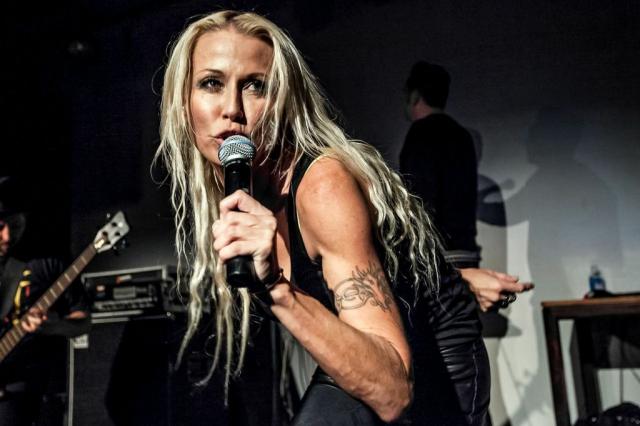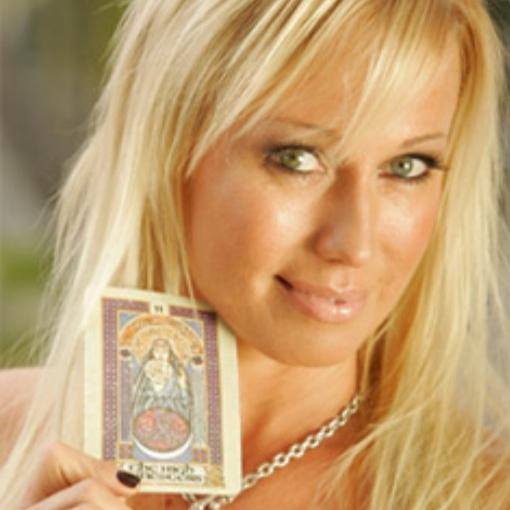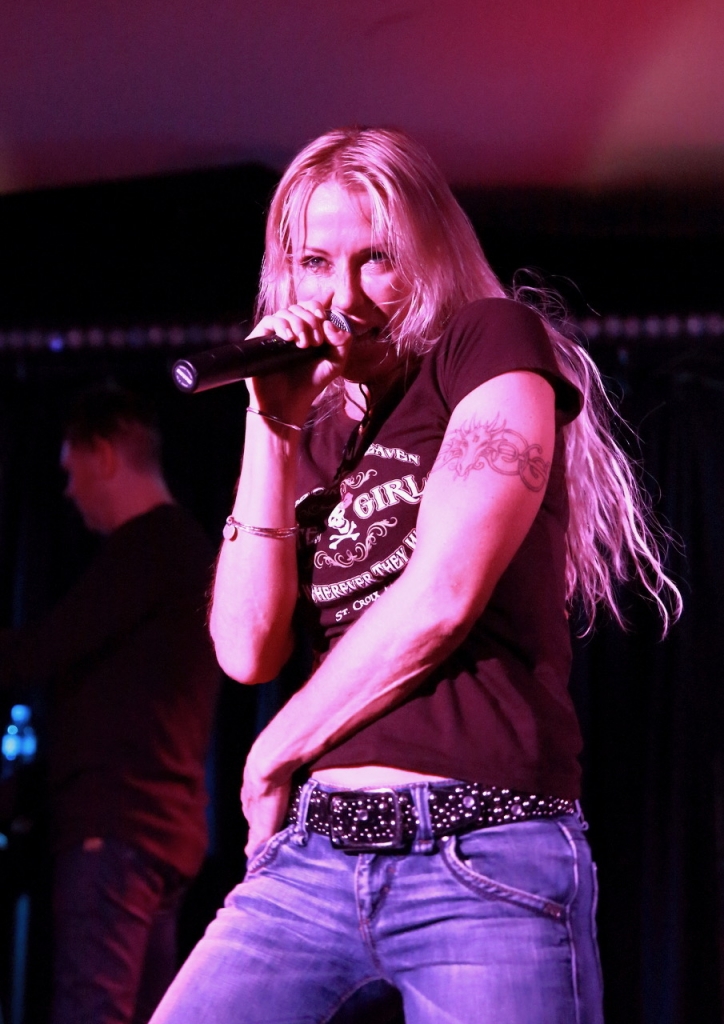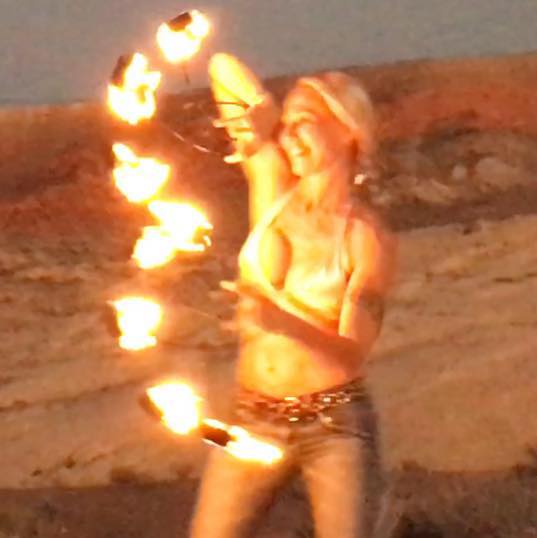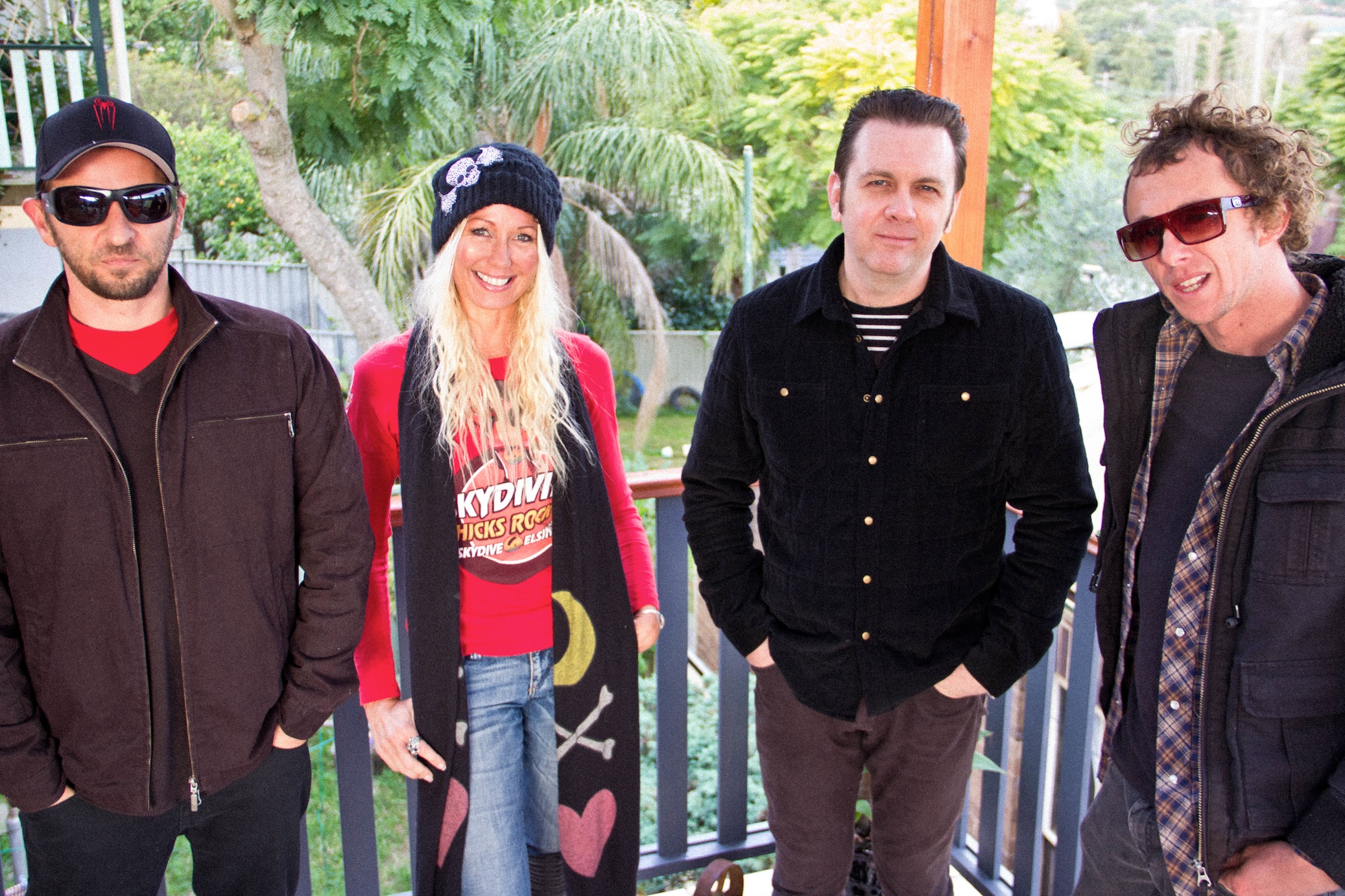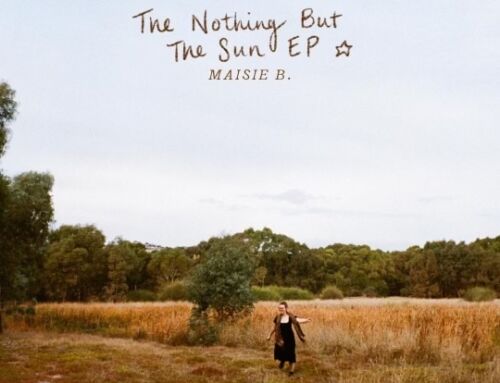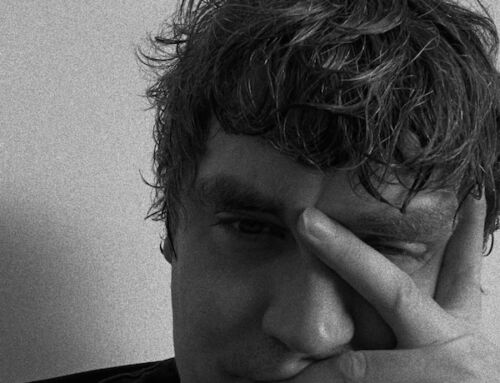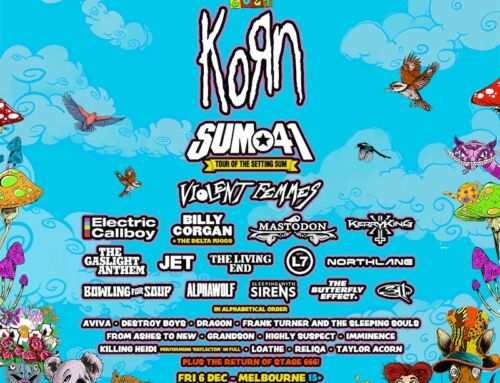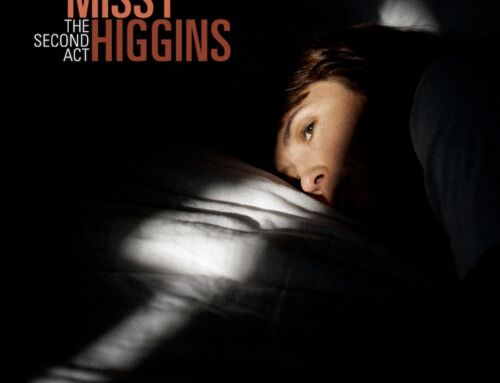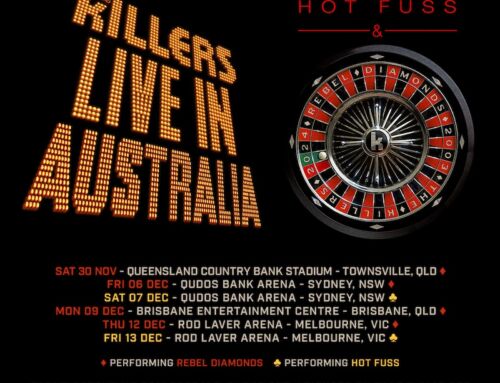Project Description
Interview with
FIONA HORNE
Interviewer – Julie Ink-Slinger
.
Rock goddess, witch, skydiver, radio and television personality, commercial pilot and author Fiona Horne has released her autobiography, “The Naked Witch”. It is a candid personal account of an onerous childhood, a rebellious adolescence and an emotionally unsteady adulthood driven by her painful past. Whether you do or don’t enjoy reading biographies, Fiona’s life story is a captivating page-turner and highly recommended.
.
.
.
Fiona, you explore some of the issues associated with identity and belongingness that a great number of adopted children have to contend with. Looking back, how did you cope with questions related to your identity and feeling ostracised by your adoptive parents?
I retreated into a shell and interpreted every criticism as a statement that I was an odd, ugly misfit – a mistake in the Universe. As a very young child I have memories of falling asleep on my mother’s chest which she and dad watched the TV in the evening – I loved that so much – the sound of her voice softly through her chest was so comforting. Yet as I grew up there was harsh discipline and no friendship between my parents and I. The statement from one of my aunts really summed it up. ‘Your mother will never love you as much as I love my children – you’re not really hers, you’re not really anyone’s are you?’ It was confusing because my parents did let my siblings and I know we were adopted and had said they wanted us more than possibly normally parents wanted children – because they had to work so hard to get us – dealing with the legal requirements of adoption etc. But back in the 60’s there were a lot of adoptive children – because single parenthood was frowned upon. Yet they were clearly ultimately disappointed that they got me. My brother and sister did not have as rough a time as I did. I was the first child.
You describe being shunned by your classmates and that they called you names and generally treat you with disdain. What impact did the bullying have on you?
I desperately ran around trying to get these bullies to like me – to think I was cool. It didn’t occur to me I could talk to my parents about it or get their help. That sort of friendship and support didn’t exist at home. So I just did dumber and dumber things to try to get the bullies approval – which led to me getting expelled. I remember being pushed down two flights of stairs at school by some older girls. (I was lucky my legs didn’t break! I was banged up, but I didn’t tell my parents this had happened because I had learned to accept that I deserved to be bullied.) The older girls said I was a slut because one girls of their boyfriends liked me. I was 13 – a virgin, never been kissed – I couldn’t understand what I had done to deserve this punishment. But I accepted that I deserved it. Punished at home, punished at school… for being me ….so I learned that ‘me’ was a bad thing.
You began to find solace in nature with its lush foliage, all kinds of critters and a peace that only solitude in the wilds can bring. How connected to your evolvement as a witch were these early explorations in the bush?
The only thing I knew about Witchcraft was the series Bewitched on TV. Nature back then felt safe, peaceful. I could get away from my parents anger at me, I could get away from the horrible kids at school. I was very young when I first found this solace and it continued until I left home at 15 – and laid the foundation for identifying with being a Witch and Pagan.
.
.
It seems to me that all of these experiences coalesced to convince you that in every aspect of your life, you weren’t good enough. What was it like to carry around the weight of such antipathy towards yourself and did this antipathy contribute to your eventual drug and alcohol use to ameliorate the pain of feeling like a valueless outsider at home and at school?
Drugs and alcohol made me feel like I cool – that I could fit in. Like they usually do at that physical age. I liked drinking alone even back then – more than drinking with others. It filled the hole inside me. And alone I could just be me. Inside my head I learned to constantly tell myself I hated myself – that I was a piece of shit. But deep inside there was a small little part of me that enjoyed life. And when I drank alone I felt more connected to the life I hoped to one day have. I would drink and dream. Ultimately this was not sustainable. Getting sober in a program five years ago has been the most rewarding thing I’ve ever done in my adult life. It’s been a huge journey of healing for me. Really difficult and sad things still happen but I deal with them so much more kindly to myself now. I no longer beat myself up to the degree I did – and I don’t run away into a bottle. I think this makes me a more useful presence in the world.
You left home in your mid-teens and found accommodation in various places around Sydney while working all manner of jobs that provided just enough money to get by. Given your lack of confidence at the time, what was the driving force behind your self-reliance and your bravery to live independently?
Just survival. I have the Holocaust survivor genes in me with my Jewish father. I really sometimes think that’s all it was – a genetic drive to survive and not give up that I inherited.
Your first foray into music was with the band Sister Sludge. You subsequently formed the punk-thrash band The Mothers that broke up in 1989. The electro-rock band Def FX was formed in 1990 and after releasing Eps, albums and regularly touring Australia, the USA and Japan, the band disbanded in 1997. Did the band feel like the family you had always hoped for and is that one of the main reasons you were so despondent by the band’s dissolution?
The band was my life for those 7 years. It was like my child had been murdered when the co-founder ended it the way he did. So much energy and effort and work – just gone in an instant. But the survivor in me found a way to go on and ultimately that loss turned into another life path. I have no regrets about things happening the way they did.
.
.
If I were so attractive that Australian Playboy wanted to photograph me and include me in its pages I would jump at the chance. Why did you pose for Playboy?
Survival – I needed money – I had nothing from all those years in Def FX. The way the band ended meant that everyone else got paid out – but I didn’t. Plus, it seemed appropriate to say yes to every opportunity to rebuild my life. Plus it was extraordinary that ugly fish-lipped, droopy boobs me was getting into Playboy! That was the dialogue inside my head. I really tore myself up – definitely I had learned to be my own worst enemy. As I describe in the book – I chose a theme (celebrating the life of infamous Witch, Rosaleen Norton) and put an all women team together to shoot it. The girls took over Playboy for that issue and celebrated female sexuality on our terms – it turned out to be an amazing fun experience and I loved the photos – but they were manufactured by others – inside my head I didn’t take any credit. It didn’t occur to me that I was attractive – just that this was a job that I needed to do for survival and approval. And I was lucky to have this amazing team making me ‘good enough.’
1999 was an eventful year for you: You released two bestselling Witchy books, you were a guest on several radio and television programs, you were a music reporter on Channel Ten and you were interviewed by Don Burke which turned out to be quite an unpleasant experience. Most people work one job at a time. Why do you enjoy a diversified work life?
Again survival – I said yes to everything. I was a people pleaser and didn’t want to turn down an opportunity. I was grateful for the work – I was also desperately seeking approval. I was the girl who was ‘good but not good enough’ so I had to say yes to everything and keep trying to be ‘good enough’ – and I never got to that point inside my head. From the outside it surely looked like I was a big success – but my inner dialogue was the opposite.
It was around this time that you met Tom Jones. You were granted the only live interview with the promiscuous Lothario and you spent an impassioned couple of weeks together. Can you share with our readers, particularly the women, why Tom Jones is so desirable?
Tom was/is a charming man – he made you feel like you were important and interesting. He was/is friendly and non-judgemental. I was flattered by his interest in me. And he was also just a lot of fun. I felt happy in his company – he had that effect on everyone around him.
.
.
In 2001 you moved to Los Angeles with a view to securing work in entertainment. Roles were as rare as hen’s teeth; however you scored a book deal, “Pop Goes the Witch” and subsequent appearances on television shows including E! News. How did you cope with the uncertainty of employment?
By working harder than ever – as I describe in the book I said yes to everything. Which also meant taking steps backwards – but at the time not realising that I was over diversified, and that diluted my effectiveness in the industry. But looking back I had a good run – its just at the time I (surprise!) never felt good enough.
During the writing of your book, “Bewitch a Man”, you fell for your spin instructor, Stacy, and spent the next year convincing yourself you were gay. Can you identify any particular differences between being in a lesbian relationship and being in a heterosexual relationship?
I learned that love is non gender specific – Stacy swept me of my feet and I just felt so happy and excited that she seemed to like me so much. LA was a very difficult town for relationships – so when someone actually calls when they say they will, and spends every day with you, it feels like love! I did love her – we had an amazing time. But ultimately once she had ‘conquered the straight girl’ I was no longer interesting to her. Especially because the big house I lived in I didn’t own. She was looking for someone who could support her. She left me for another straight woman – but this woman had a lot of money.
You were inspired to learn how to fly a plane, consequently, earning a professional pilot’s licence in 2016. Since that time, you have taken part in humanitarian aid missions, flying in food, medical supplies and other essential cargo to places ravaged by poverty and the after effects of natural disasters. How rewarding is this work, knowing you are helping people in need?
As I describe in the book, flying aid was the primary reason I completed my pilots training. I wanted to do something useful in the world. I’ve learned that the best way to get out of the ‘hell inside my head’ is to help others. I put together two missions to Haiti early this year and I am currently putting together a third that will go there in November – I offered my services to the Good Samaritan Foundation of Haiti – a small grassroots operation that works to rebuild communities – helping with re-establishing gardens and renewable environmentally friendly renewable food sources. As well as good education for children, to give the power back to the community so that they can prosper and one day not need us anymore.
Getting my commercial pilots license and the job I have now flying for a charter company in the Caribbean was the hardest thing I have ever done. I am just grateful to be able to do an ‘honest day’s work for an honest day’s pay’ so to speak! The entertainment industry is so fickle and speculative. Flying airplanes is not. My personal feelings don’t come into it – I just follow the rules, operate the machine safely and deliver a service. And at the end of the day I love my job.
.
.
Fiona, your life has been an extraordinary journey, packed full of joyful and painful experiences that you have survived with courage and an unwavering determination, recognised that the positive contributions you have made in the world by your music, your Witchy, restorative powers and your beauty filled spirit are helping heal people everywhere, and the invaluable lessons you have learned about loving yourself completely and not seeking anyone else’s approval for any reason whatsoever will inspire others to stop looking to others for acceptance and validation. I confidently predict that you will continue to make positive contributions to the world in whatever endeavours you undertake and I thank you for reminding me we can all make a difference.
Thank you so much Julie – it’s been lovely chatting with you! I’m so grateful and happy that my story is resonating positively with readers. Let’s all keep rockin’ on … no matter what!
.
For details on Fiona’s newest book, click here!
.
.
Connect with FIONA HORNE
Interviewer Details
- Julie Ink-Slinger
.



